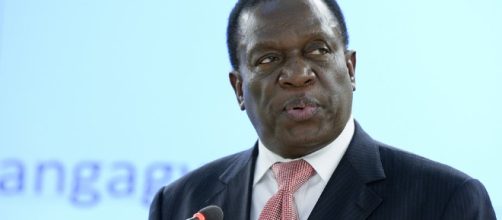Some called it a coup, some didn't. But the result of it ended up with Robert Mugabe announcing his sudden resignation after surprising everyone with his televised speech last week Sunday, claiming he was not going anywhere.
Yesterday afternoon Emmerson Mnangagwa took to the stage in front of 60,000 people at the Zimbabwe national stadium, leaving many outside unable to get in.
Majority of Zimbabwean people have never experienced someone else in power, so it was an event not to be missed. He gracefully read his speech with the support of his foreign allies, other Zimbabwean political leaders and senior army officers.
It was a formal event where he was sworn in as President, but also a very important ceremony and a constitutional one.
The firing of Mnangagwa and other ministers in the last few weeks led to the 'military coup', which many believe it was designed to make Mugabe's wife, Grace Mugabe, become the vice president in December.
Corruption has been rife in the country of Zimbabwe for years, many people have been left helpless unable to do anything about it as there were often consequences. In his speech Mnangagwa said, "Actions of corruption must stop forthwith. Where these occur, swift justice must be served. The culture of government must change and change now." He went on to say he would do the best he could to fix the system which has been "poisoned and polarised" and help the democratic institutions.
Will this genuinely make a change?
Although this marked an end of the Mugabe regime, will it be any different from before? After all, Mnangagwa has been by Mugabe's side ever since the liberation struggle in the 1980s to now. Many Zimbabweans have been joyous over the last few days, but they know that there are many tough days ahead. He also carries a lot of baggage that has left many skeptical.
The new president promised to bring the economy back to life, resolve the land and farm problems and eliminate corruption as well as promising free and fair elections which are to take place before September 2018.
Zimbabweans in the country have suffered for many years. Whether it's through financial hardship, not having food, no access to clean water, education or otherwise.
It has not been easy especially since 2008-09 when the country went through a high level of inflation, which led to the Zimbabwean dollar being eradicated.
So what next?
After almost 40 years in power, the country's banking system, agricultural system and industrial sector need serious reform immediately.
The challenge that Mnangagwa has is to bring the economy back to life, giving opportunities to many of the young people who have struggled to get work over the last decade or two.
There is so much optimism in the country, but I would hope that people should be realistic and not expect too much in the very near future. What will need to happen is that investment takes place, alongside having optimism.
Every Zimbabwean's hope right now is to see the words Mnangagwa spoke come to action rather than just merely presenting a great speech for the whole world to see.
Zimbabwe has a great amount of potential and have some of the greatest resources in education especially. It has one of the highest literacy rates across the whole continent of Africa. The Zimbabweans that left in order to build careers elsewhere in the diaspora, could possibly return to help revive this country. But they will not be able to do it on their own, the government need to keep it's word and be realistic with their aspirations as it will take time to rebuild.


